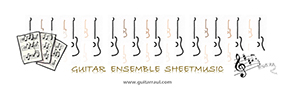This research paper will analyze the development of a creolized musical culture in the Tidewater of Virginia during the eighteenth century. This creole music combined elements of both European/British Isles music with traditional West African idioms. There are several historical questions that this paper will attempt to address. How is it that a cross-racial music culture developed within a society that was focused on the concept of ordered hierarchy and designed to culturally segregate Anglo and Afro-Virginians? Was this shared music culture the result of unidirectional influence of European music styles being forced onto subjugated Africans, or was it a bidirectional exchange in which members of both groups contained agency? Additionally, the historiographic significance of this study will be addressed, from both a musicological and slave studies perspective. The phenomenon of this creolized music culture deserves close attention because it is the foundation of the majority of American popular music forms, and is yet one more way to analyze the nuance and complexity of actual individuals within the plantation slave system in the Chesapeake. By incorporating the work of social scientist F.A. Hayek, this paper closes by attempting to explain the causality behind the emergence of this music. Much work has been done within the historiography of American slavery to dispel tropes and generalizations; this research seeks to add to that body of knowledge.
By James Padilioni Jr.
emergent harmony the creolization of music
http://www.wcupa.edu/UndergraduateResearch/journal/documents/padilioni_S2012.pdf





